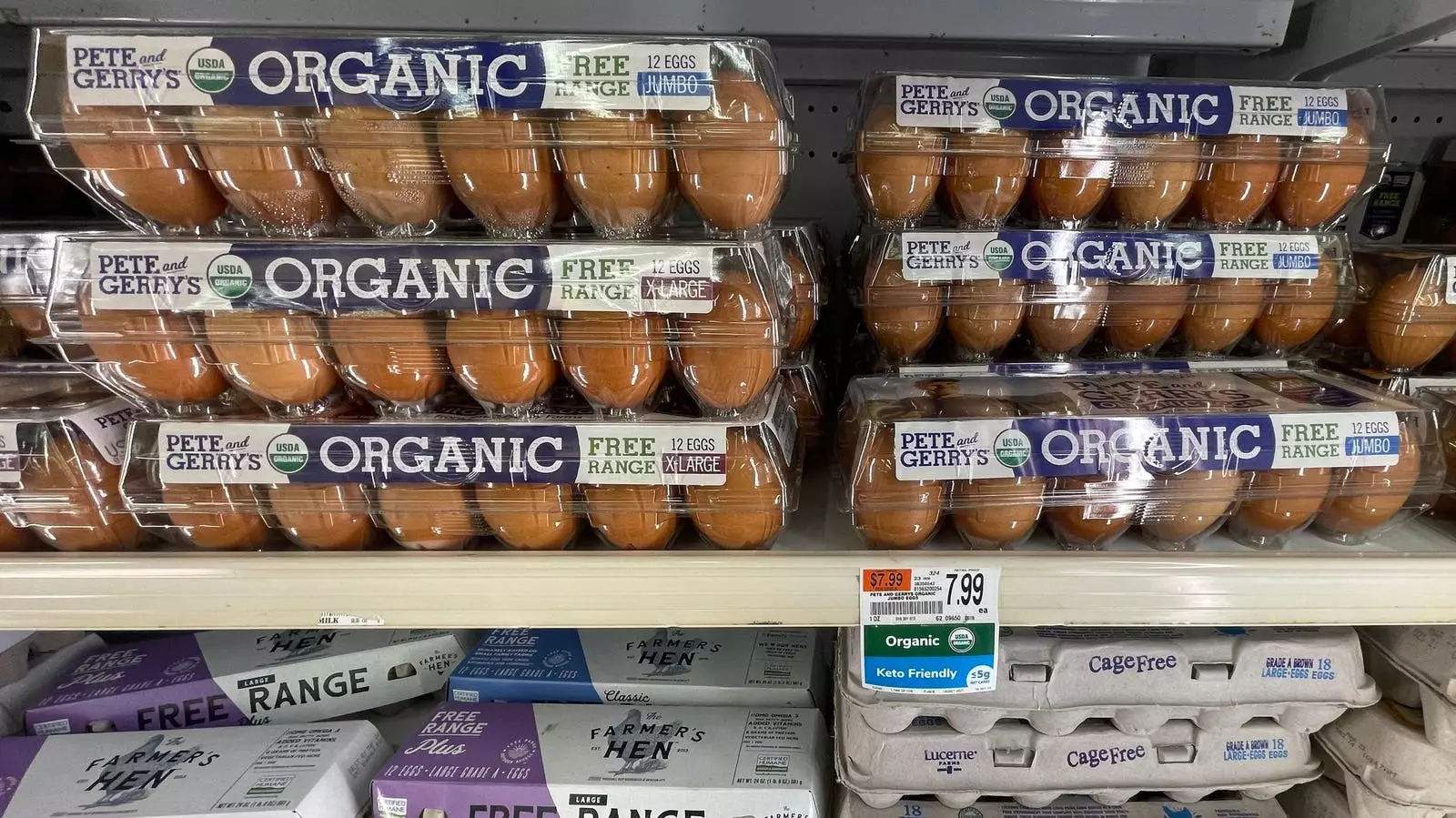For the majority of us, eggs have long represented simplicity and comfort in our culinary lives. Always present, they find their way into numerous recipes; whether they’re scrambled into breakfast scrambles, fried into a sunny side up marvel, or whisked into cake batter for a weekend bake-off, eggs have been a staple. However, amidst the current economic climate, eggs have morphed from mundane to magnificent—their value evolving into something almost luxurious. Recent developments, particularly the massive theft of organic eggs in Pennsylvania, reveal a significant shift in our relationship with this common food item.
Gone are the days when the thought of egg theft would seem trivial or absurd. Now, as we witness heinous acts of burglary targeting eggs—which have recently soared to $8 per carton—it becomes apparent that these once inexpensive staples are increasingly viewed through the lens of economic vulnerability. Their rising price reflects not merely inflated costs but a structural fragility within our food supply. Eggs now symbolize a wider problem in an agri-food system grappling with disruptions, soaring demand, and unforeseen thieves ready to capitalize on the situation.
The story of the stolen eggs is intertwined with a larger network of food-related crimes. As reported by CargoNet, cargo thefts across the U.S. and Canada rose by 27% in just one year, with consumables becoming a primary target. The alarming surge in thefts demonstrates a striking vulnerability in the food supply chain. Eggs, once a mere breakfast staple, have become a commodity worth stealing, raising pertinent questions: When did food evolve into a high-value target, and what other items might be next on the list?
The egg heist in Pennsylvania wasn’t an isolated event, but part of a trend spotlighting different food varieties becoming economically lucrative. This isn’t just about avian flu outbreaks that have severely impacted supply chains; it’s a sign that food security has now taken on a completely different meaning. Within the past decade, we’ve seen high-profile food thefts ranging from the infamous Great Canadian Maple Syrup Heist, where millions of dollars worth of syrup vanished, to the Nutella theft that left German warehouses significantly lighter. These incidents indicate that as prices inflate, food is no longer just food; it has morphed into a commodity, a viable market asset that can be exploited.
The Pennsylvania egg theft serves as a stark reminder of our shifting views on food security. It is not merely about the lost eggs; it represents something more profound. Shoppers are becoming increasingly aware of their food system’s future, particularly as the frequency of these incidents occurs more and more. As inflation rises and wage stagnation puts pressure on consumers, the demand for reliable and affordable food becomes ever more pressing.
What the egg heist illustrates is how fragile our assumed stability is—food that was once reliable can quickly become a source of anxiety. For the producers, the disastrous ramifications reveal countless issues regarding the security of their practices and logistical frameworks. The confidence that filled both farmers and consumers has been rattled, leading to questions about how to protect these essential ingredients and manage growing vulnerabilities amid significant demand instability.
With the stability of food being questioned, it raises ethical considerations about our current agricultural practices and consumer behaviors. One must ponder the extent to which our insatiable appetites drive these issues. As economic landscapes shift and food supplies face challenges, it becomes increasingly crucial to examine how these thefts reflect an evolving mindset regarding food. Are we unwittingly contributing to a culture that views food solely as a commodity rather than a basic right?
In navigating this new reality, constituents from farmers to consumers must find ways to reestablish trust in not just the food they consume but also the systems that deliver it. High food prices foreshadow a concerning future for many, leading to greater uncertainty regarding breakfast staples and, ultimately, the integrity of our food supply.
As we further dissect the implications of events like the Pennsylvania egg theft, the lessons we can learn are manifold. Our food system’s vulnerabilities must be addressed through comprehensive reforms focusing on resilience, security, and perhaps a reinvigorated appreciation for the simplicity of our sustenance. By recognizing the fragility of everyday foods, we can foster a renewed commitment to ensuring food security for all—because when even eggs are susceptible to theft, it is a clear signal that we must evaluate our food systems, processes, and our values surrounding them.


Leave a Reply